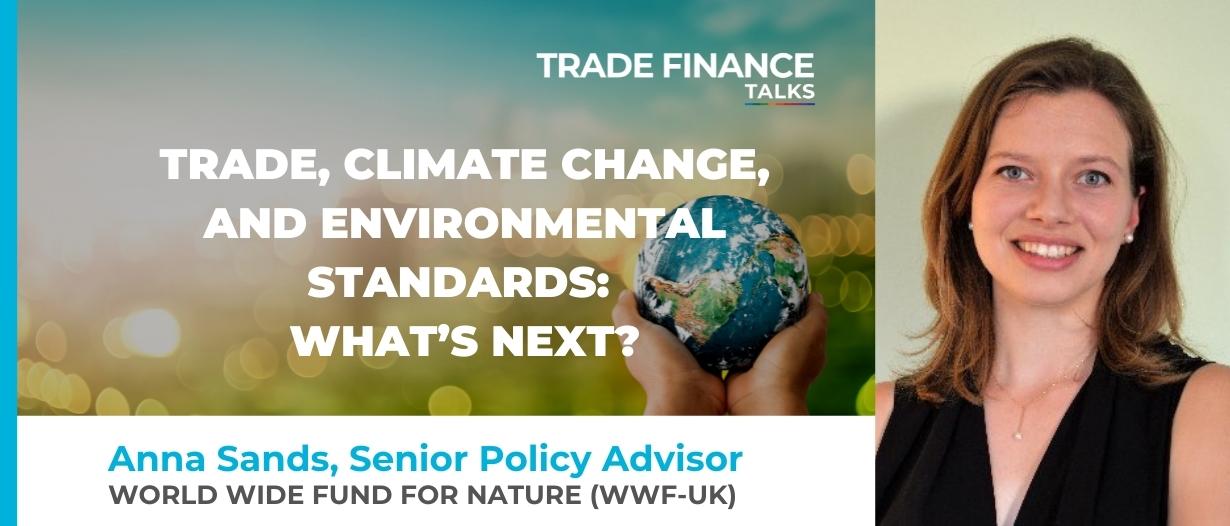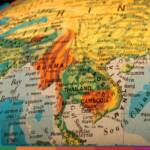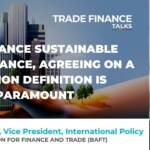In light of COP26 last November, and with Ngozi Okonjo-Iweala providing the WTO with a fresh direction, the world of trade is increasingly recognising that trade and environmental action cannot operate in silos.
In a globalised world, domestic action on climate change needs to be supported by a coherent trade policy to be effective.
Our future depends on adapting the existing trade structures to pursue the reforms needed to keep 1.5°C degrees alive.
A key area of international trade that has a significant effect on the climate and nature crises is trade in food and agricultural products.
Globally, our food system produces 29% of greenhouse gas (GHG) emissions, and drives 70% of terrestrial and 50% of freshwater biodiversity loss, according to a 2020 report by WWF-UK.
With numbers like these, it is clear that the way we produce food is destroying the natural assets that are our greatest ally in the fight against climate breakdown.
The 2020 Living Planet Report presents a sobering picture of the pressures human activity have placed on the planet. We must take action to educate ourselves and others to create a world where people and nature can thrive together. Learn more: https://t.co/mYdFuw4GAd #LPR2020 pic.twitter.com/5iGULSixoa
— World Wildlife Fund (@World_Wildlife) September 10, 2020
At WWF, we are committed to getting the destruction of nature out of our supply chains, and shifting land-use and farming towards sustainability.
Countries are exploring ways to make their food supply chains more sustainable.
At COP26, for example, the UK hosted the Forest, Agriculture and Commodity Trade Dialogues (FACT), seeking to accelerate the transition towards more sustainable land-use practices, and the broader Global Resource Initiative.
At the same time, the UK is setting out its independent trade agenda after having left the European Union (EU), and is now negotiating new free trade agreements with countries across the globe.
Core environmental standards
This puts the UK in an ideal position to link up its climate ambition and new scope for agency in the trade sphere to propose innovative ideas for sustainable trade.
What should a UK environmental trade policy do?@AnnaZofiaSands, trade policy specialist at @wwf_uk, shared her thoughts at our recent event – watch or listen to the full discussion https://t.co/JwoBCAe9NK pic.twitter.com/233x5sr1QI
— Institute for Gov (@instituteforgov) December 19, 2021
A key problem in agricultural trade relates to the large scope of divergence in the standards of production for food.
Countries that aim to reform their agricultural systems to render them more environmentally beneficial, but also reduce their barriers to trade in agricultural goods, can see their domestic production struggle to compete with food produced to lower environmental standards.
There is a solution to this challenge which does not require stepping back from international trade.
Core environmental standards – i.e. minimum sustainability standards that would apply to all products both imported and produced domestically – would create a common baseline for production.
By applying them in an even-handed manner to foreign and domestic producers, and designing them with clear policy objectives, they would be consistent with WTO rules.
They would encourage the development of competitive markets in sustainable agricultural production, by supporting investment in innovative, sustainable practices.
Farmers can improve their productivity—and therefore their incomes—by adopting more sustainable agriculture methods and improving farm management. Manual and natural pest control techniques, for example, not only cut costs by reducing the use of expensive and harsh agrochemicals.
— Rainforest Alliance (@RnfrstAlliance) February 15, 2022
Domestic and multilateral action
This is a rapidly developing area of policy. Currently, there are no internationally agreed standards on the environment that would apply to trade by default, but there are such international standards for food safety (e.g. the Codex Alimentarius).
To fill this gap, in addition to developing core environmental standards on a national level, WWF is proposing an international set of environmental standards for trade known as the Codex Planetarius.
With the UK chairing the G7 and hosting COP26 @trussliz should use the UK's independent trading nation status to press for reform at the WTO, working with like-minded partners to develop a Codex Planetarius – a set of minimum environmental standards for the trade of food. 2/4
— WWF Politics ???? (@WWF_UK_Politics) March 2, 2021
As international processes are by nature slower, requiring agreement across many parties, countries could start with developing domestic core environmental standards, and later pursue alignment in multilateral coalitions of like-minded countries, eventually channelling up to international processes.
The idea of applying environmental standards to imported products is not without precedent.
The US, for example, has done so for seafood via the Marine Mammal Protection Act, which requires certification to show that the methods used are sufficiently effective at protecting marine mammals.
There are also proposals being investigated in the EU to develop “mirror clauses”, which would be environmental standards for agricultural imports mirroring key regulations within the EU.
So sweet. ???? Sperm whales and other marine mammals in U.S. waters rely on the Marine Mammal Protection Act for protections against harmful human activity. Oil special interests in Congress threaten marine mammal safety. #DefendMarineMammals today: https://t.co/oHFt8rMm6X pic.twitter.com/sRFIsVXx0e
— Oceana (@oceana) April 20, 2021
Developing countries and trade finance
A global shift to regenerative agriculture would benefit farmers in the Global South.
However, care needs to be taken in the design of core environmental standards to ensure that they do not disadvantage developing countries.
Many developing country farmers are already part of global supply chains, and are therefore meeting corporate and voluntary certification standards, but the proliferation of standards can be a source of frustration and needs to be addressed.
The design of core environmental standards should be accompanied by improving the support to developing country farmers.
Existing trade finance mechanisms, such as Aid for Trade, could be used for this purpose, by redirection towards more green initiatives.
International finance for a transition to sustainable agriculture for smallholder farmers was one of the key issues discussed at the FACT Dialogues, and should be pursued in parallel to developing environmental standards for trade.
The future of green trade
To meet the climate and nature crises, trade and environmental policy need to be designed in a coherent way.
Innovative solutions are needed, and countries should be bold in making policy proposals, such as core environmental standards, and creating alliances with like-minded partners.
This will create the foundation for a race to the top, rather than a race to the bottom, in environmental policies. There is no time to waste.


















































